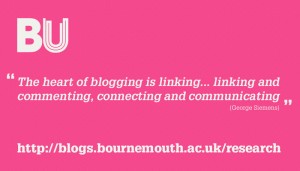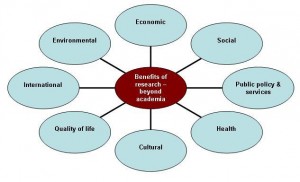You may hear the terms Enterprise Education and Employer Engagement banded about quite a lot but what do they actually mean? Jo Stark, BU’s Employer Engagement and Entrepreneurship Manager, provides some further clarification.
Enterprise Education
The term “Enterprise Education” at BU draws together existing pockets of best practice into a coherent whole that will provide a focus for further development across the institution and beyond institutional boundaries.
For an example of this see the Dynamo Enterprise Boot Camp Video which provides a bite size overview of the 2010 enterprise boot camp for students that BU facilitated with four other regional universities in collaboration with local businesses.
By embedding opportunities for our students to engage in external activity within the curriculum, academics can not only enhance our students’ employability, but also develop their profile with employers. This can be embedded through live consultancy projects, business simulation challenges and involvement in the entrepreneurship society – Business Mania.
Although activity such as student placement and graduate recruitment does not create direct enterprise income, it offers BU and its academics a significant platform for employer engagement. As an example, by helping our graduates to gain employment not only develops relationships with employers, but enables the academic to maintain the relationship with the graduate, who, in a few years could become a client for BU.
By demonstrating “enterprising” attributes through their approach to teaching and research, academics will not only encourage their students to think this way, but will also develop opportunities for income-generating activity.
The team in the Centre for Research and Enterprise (CRE) have recently supported academics in DEC to develop a dedicated enterprise module in the Software Systems degree framework. The team not only helped with the development of curriculum, but also provide external speakers for guest lectures to help enhance the learning experience for the students and develop wider opportunities.
Employer Engagement
At BU ‘Employer Engagement’ is defined as any form of contact between BU and an employer that attempts to effect a change in the intellectual capital, understanding or behaviour of an employer, for specific purpose of commercial gain on BU’s part or to benefit the economy of region and wider public.
BU takes its interpretation of Employer Engagement therefore as Enterprise in its widest sense. BU includes activity focussed at both business and community:
1. Demand led learning and teaching provision (Short courses)
2. Workforce Development (CPD)
3. An active stakeholder in the economic prosperity of the conurbation and wider region
4. Employer focussed curriculum development
5. Employability (student and graduate placements)
In order to do this, it is vital that, as part of this activity an in-depth understanding of HE and economic policy is maintained, not only enabling BU to remain reactive to external drivers, but also remain competitive in an increasingly dynamic market place.
Through this activity CRE is able to generate opportunities for the institution, academic staff and students. In recent months CRE has established a strategic relationship with a blue chip multi-national and brokered the opportunity across to a leading Prof. Numerous placement and graduate recruitment opportunities are captured and disseminated to the appropriate schools. This activity also enables CRE to identify employer demand for specific short course development.
For further information contact Jo Stark who will be happy to help. Otherwise check out the BU Enterprise Intranet pages on Enterprise Education and Employer Engagement.
 Internal peer review is credited with producing higher quality research proposals and increased success rates. BU’s internal peer review process – the Research Proposal Review Service (RPRS) – is available to all staff so why not try it out?
Internal peer review is credited with producing higher quality research proposals and increased success rates. BU’s internal peer review process – the Research Proposal Review Service (RPRS) – is available to all staff so why not try it out?


















 BRIAN upgrade and new look
BRIAN upgrade and new look Seeing the fruits of your labour in Bangladesh
Seeing the fruits of your labour in Bangladesh Exploring Embodied Research: Body Map Storytelling Workshop & Research Seminar
Exploring Embodied Research: Body Map Storytelling Workshop & Research Seminar Marking a Milestone: The Swash Channel Wreck Book Launch
Marking a Milestone: The Swash Channel Wreck Book Launch ECR Funding Open Call: Research Culture & Community Grant – Application Deadline Friday 12 December
ECR Funding Open Call: Research Culture & Community Grant – Application Deadline Friday 12 December MSCA Postdoctoral Fellowships 2025 Call
MSCA Postdoctoral Fellowships 2025 Call ERC Advanced Grant 2025 Webinar
ERC Advanced Grant 2025 Webinar Update on UKRO services
Update on UKRO services European research project exploring use of ‘virtual twins’ to better manage metabolic associated fatty liver disease
European research project exploring use of ‘virtual twins’ to better manage metabolic associated fatty liver disease